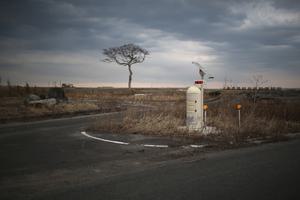Asia
-
Artificial Islands
The Rising Environmental Toll of China’s Offshore Island Grab
-
Exploring How and Why Trees ‘Talk’ to Each Other
Ecologist Suzanne Simard has shown how trees use a network of soil fungi to communicate their needs and aid neighboring plants. Now she’s warning that threats like clear-cutting and climate change could disrupt these critical networks.
-
Wildlife Farming: Does It Help Or Hurt Threatened Species?
Wildlife farming is being touted as a way to protect endangered species while providing food and boosting incomes in rural areas. But some conservation scientists argue that such practices fail to benefit beleaguered wildlife.
-
Science in the Wild: The Legacy Of the U.S. National Park System
As the National Park Service marks its centennial this month, the parks are being celebrated for their natural beauty and priceless recreational opportunities. But they also provide a less recognized benefit: the parks serve as a living laboratory for critical scientific research.
-
The New Green Grid: Utilities Deploy ‘Virtual Power Plants’
By linking together networks of energy-efficient buildings, solar installations, and batteries, a growing number of companies in the U.S. and Europe are helping utilities reduce energy demand at peak hours and supply targeted areas with renewably generated electricity.
-
Sticker Shock: The Soaring Costs Of Germany’s Nuclear Shutdown
German Chancellor Angela Merkel’s 2011 decision to rapidly phase out the country’s 17 nuclear power reactors has left the government and utilities with a massive problem: How to clean up and store large amounts of nuclear waste and other radioactive material.
-
Floating Solar: A Win-Win for Drought-Stricken Lakes in U.S.
Floating solar panel arrays are increasingly being deployed in places as diverse as Brazil and Japan. One prime spot for these “floatovoltaic” projects could be the sunbaked U.S. Southwest, where they could produce clean energy and prevent evaporation in major man-made reservoirs.
-
For India’s Captive Leopards, A Life Sentence Behind Bars
As sightings of leopards in populated areas increase, Indian authorities are trapping the animals and keeping them in captivity — often in small cages without adequate food or veterinary care. The real solution, wildlife advocates say, is to educate the public on how to coexist with the big cats.
-
What Would a Global Warming Increase of 1.5 Degrees Be Like?
The Paris climate conference set the ambitious goal of finding ways to limit global warming to 1.5 degrees Celsius, rather than the previous threshold of 2 degrees. But what would be the difference between a 1.5 and 2 degree world? And how realistic is such a target?
-
A Tiny Pacific Nation Takes the Lead on Protecting Marine Life
Unhappy with how regional authorities have failed to protect fish stocks in the Western Pacific, Palau has launched its own bold initiatives creating a vast marine sanctuary and conducting an experiment designed to reduce bycatch in its once-thriving tuna fishery.
-
A Rather Bizarre Bivalve Stirs Controversy in the Puget Sound
The Asian market for the odd-looking giant clams known as geoducks has spawned a growing aquaculture industry in Washington's Puget Sound. But coastal homeowners and some conservationists are concerned about the impact of these farming operations on the sound’s ecosystem.
-
Point/Counterpoint: Should Green Critics Reassess Ethanol?
Former U.S. Senator Timothy Wirth and former White House Counsel C. Boyden Gray argue that environmental criticisms of corn ethanol are unwarranted and that the amount in gasoline should be increased. In rebuttal, economist C. Ford Runge counters that any revisionist view of ethanol ignores its negative impacts on the environment and the food supply.
-
Why CO2 ‘Air Capture’ Could Be Key to Slowing Global Warming
Physicist Klaus Lackner has long advocated deploying devices that extract carbon dioxide from the atmosphere to combat climate change. Now, as emissions keep soaring, Lackner says in a Yale Environment 360 interview that such “air capture” approaches may be our last best hope.
-
After Paris, A Move to Rein In Emissions by Ships and Planes
As the world moves to slash CO2 emissions, the shipping and aviation sectors have managed to remain on the sidelines. But the pressure is now on these two major polluting industries to start controlling their emissions at last.
-
Bringing Energy Upgrades To the Nation’s Inner Cities
Donnel Baird has launched a startup that aims to revolutionize how small businesses and nonprofits secure funding for energy efficiency and clean energy projects in low-income neighborhoods. In a Yale Environment 360 interview, he talks about how he plans to bring his vision to dozens of U.S. cities.
-
How Nations Are Chipping Away at Their Protected Lands
Winning protected status for key natural areas and habitat has long been seen as the gold standard of conservation. But these gains are increasingly being compromised as governments redraw park boundaries to accommodate mining, logging, and other development.
-
Can Uber-Style Buses Help Relieve India’s Air Pollution?
India’s megacities have some the deadliest air and worst traffic congestion in the world. But Indian startups are now launching initiatives that link smart-phone apps and private shuttle buses and could help keep cars and other motorized vehicles off the roads.




